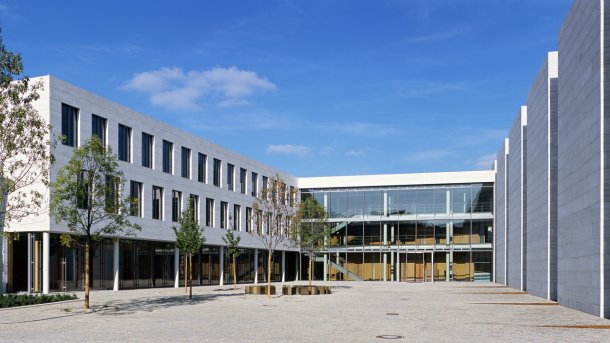BGH: Radio cell searches as evidence only admissible for very serious offenses
A burglar was also convicted on the basis of data from a radio cell query. This was not permissible in this case, the Federal Court of Justice ruled.

Courtyard of the north building of the Federal Court of Justice in Karlsruhe.
(Image: BGH / Stephan Baumann)
A radio cell search may not be used as evidence if it is not based on a particularly serious criminal offense. This was decided by the Federal Court of Justice (BGH), partially overturning a decision by the lower court in a case involving multiple thefts.
The case concerned a man who had been sentenced to a total prison sentence of two years and three months for three counts of theft with weapons and two counts of theft with steel. The convicted man appealed against this to the 2nd Criminal Senate of the Federal Court of Justice.
Burglary in a kiosk
The regional court had based its verdict on the results of a radio cell search, among other things. However, such "collection of commercially stored traffic data" requires the suspicion of a serious criminal offense, as stipulated in paragraph 2 of section 100g of the German Code of Criminal Procedure. The suspicion of burglary in a kiosk is not a serious crime, however, according to the BGH judges. Therefore, the regional court should not have used the results of the radio cell search.
The Federal Court of Justice ruled that the basis for the convicted man's overall prison sentence was thus withdrawn. Another chamber of the regional court must now deal with the case again.
Burglary of a kiosk or restaurant is different to burglary of a private home that is in permanent use. In 2017, the list of offenses in Section 100g of the German Code of Criminal Procedure (StPO) was expanded, allowing the police to carry out radio cell searches in connection with such crimes and present the results as evidence.
(anw)